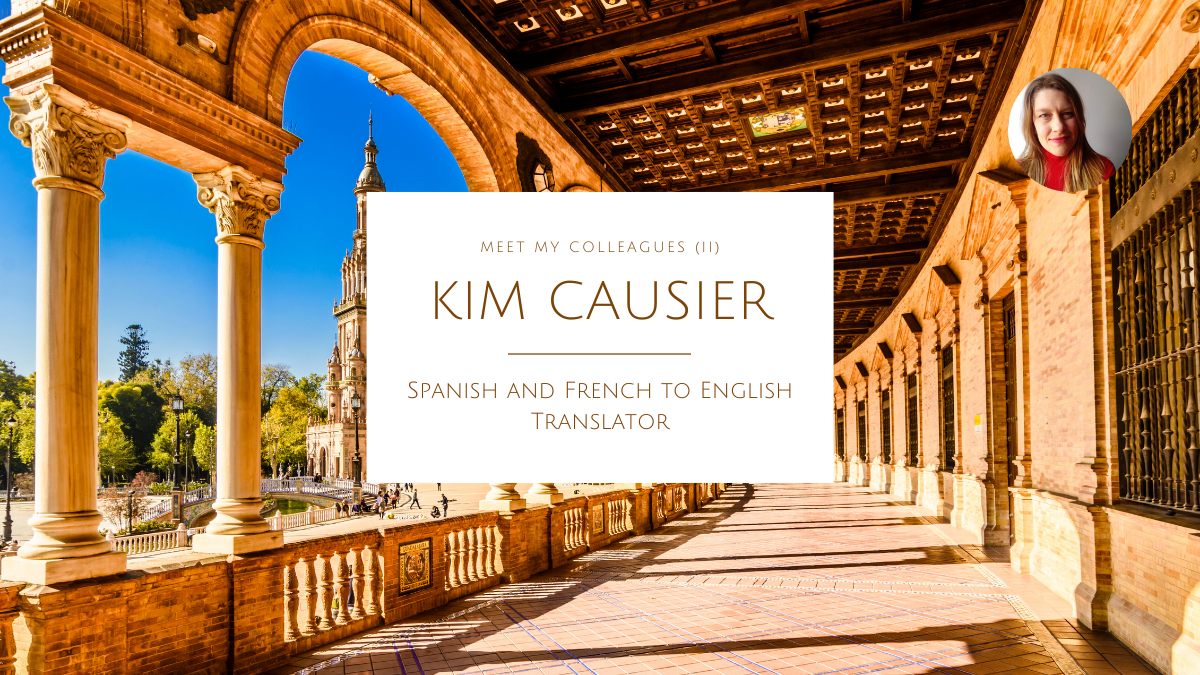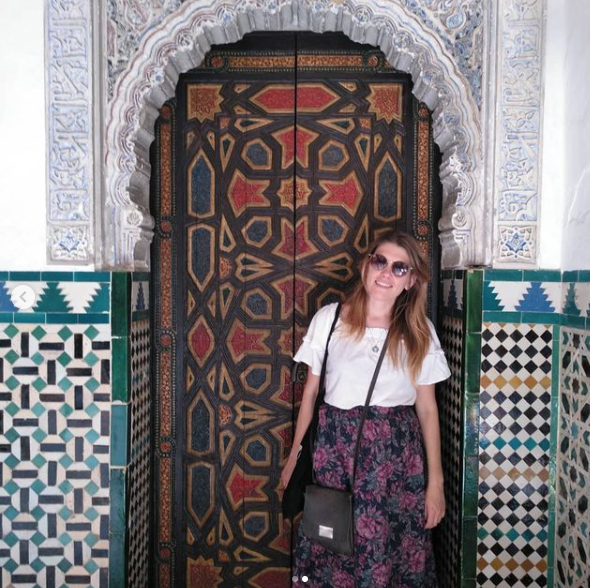
Meet my colleagues (II)
Kim Causier, Spanish and French to English Translator
I met Kim during my first year as a freelance translator when I needed a native English translator for a project at Prêt-à-translate. While that project didn’t materialise, I kept her details on file and promised to contact her when I next needed help.
And, contrary to what other companies often do, I did contact her as soon as I had another opportunity!
Kim quickly became my main reference translator for UK English and we have now been working together for 5 years.
She is an excellent professional and a fantastic teammate, always willing to make things easy for me and my clients.
Today I want you to know more about her, her experience and her life in Spain.
How did you get into translation?
I very almost did not get into translation, as despite getting one of the best marks in the French language performance exams between Middle and High School, I was put into a lower-level class (pupils are divided by academic level in the UK).
After going over the French alphabet for three weeks, I realised I was in the wrong class and asked the teacher to review my marks. Luckily, she moved me to the higher-level class, and I was able to start learning Spanish. Otherwise, who knows where I’d be now!
Despite never having stepped foot out of England, I seemed to have an innate talent for languages and knew from my teen years that I wanted to do something with them. At 14, on my first trip to Spain with my family, I loved trying to pick out Spanish words from the cacophony of passers-by and enjoyed testing out my (very limited) vocabulary in bars and restaurants.
This is also the age I had to decide what A Levels I would take, so I naturally chose French and Spanish and later went on to study a BA and Masters in Translation and Interpreting at the University of Salford. It was a challenge for me as I am the first person in my family to go to University!
How long have you been living in Spain?
I have been living in my adoptive city, Seville, since 2009.
I originally moved to Spain to complete a three-month work experience placement in a translation agency. When the three months were up, I had fallen for the city and still hadn’t seen it at its best: in spring with the exuberant Holy Week processions and lively April Fair.
I asked to stay, was offered an additional six months’ work experience and was then eventually given a “permanent” contract, which lasted until a cheaper option came along (i.e. a new work experience student)! It did give me the magic two years’ translation experience I needed to go it solo though.
And since, well, I am very familiar with Holy Week (I’ve even been a penitent on Palm Sunday) and I own three trajes de gitana, figure-hugging flamenco dresses worn to the April Fair.

Have you lived anywhere else?
I have lived in a few other countries. Before I went to University, I took a gap year and lived in Toronto for a few months. The idea was to practice French but everyone spoke English in that area.
I also lived in Lannion, Brittany in France during Uni, where I worked as an English conversation teacher in Alcatel.
Since being freelance, I try to escape the heat of the city in the summer and once went to Lisbon for a month. A month isn’t really long enough to say you’ve lived somewhere but it opens your eyes to the culture and people a lot more than just passing through for a matter of days.
What most surprised you about everyday life in Spain?
When I did a six-month translation placement in INESCOP (a footwear institute) in Alicante, I really couldn’t believe that I had to go around the whole office kissing everyone on my first day. It was early September and was still pretty hot and there were a few sweaty cheeks! 😅 I am much more used to it now, but I can still be a bit socially awkward when in a group or I randomly bump into someone in the street – to kiss or not to kiss…
I do like that my greengrocer, Mercedes, would usually give me a kiss if I haven’t been in the shop for a while, although now with recommended safe distances, cheek kisses are not so common.
Also saying, “see you later” when you walk past someone on the street instead of “hello” took a while to get used to.
How does Spanish language and culture influence your work as an English translator? What do you do to make sure you sound natural in your mother tongue?
Most of my friends are from Seville. When I arrived, I really wanted to perfect my Spanish (and master er Andalú) so I made the effort to only have Spanish friends. It was tough, lonely and frustrating at times, but I think it paid off. After living here for so many years, I do have a handful of English friends.
When speaking English, I do sometimes struggle to find the word I am looking for but when working I make a conscious effort to ensure that my translations sound as natural as possible. I always use parallel texts from reliable British websites and triple check words and sentence structures.
I also try to expose myself to English as much as possible through reading and watching series and films in English, which is much easier now with streaming platforms. Thanks to social media, I am in daily contact with family and friends in the UK too.
What are your fields of work?
I would say that I specialise in Andalusian folklore, especially Holy Week. A year after moving to Seville, I started a blog (Becoming Sevillana) and spent most of my spare time exploring the city, its food, traditions and culture.
I also translate other tourism and marketing texts (robot vacuums, beauty, fashion, menus, etc.) and less interesting internal procedures. I really love how varied a day or week can be!
I have recently become more familiar with transcription too and I am currently reading an MA in Audiovisual Translation. The world of subtitling is fascinating and I can’t wait to receive more subtitling work.
I hope you enjoyed this interview with Kim.
If you need help with translation from Spanish or French into English, visit her LinkedIn profile.
